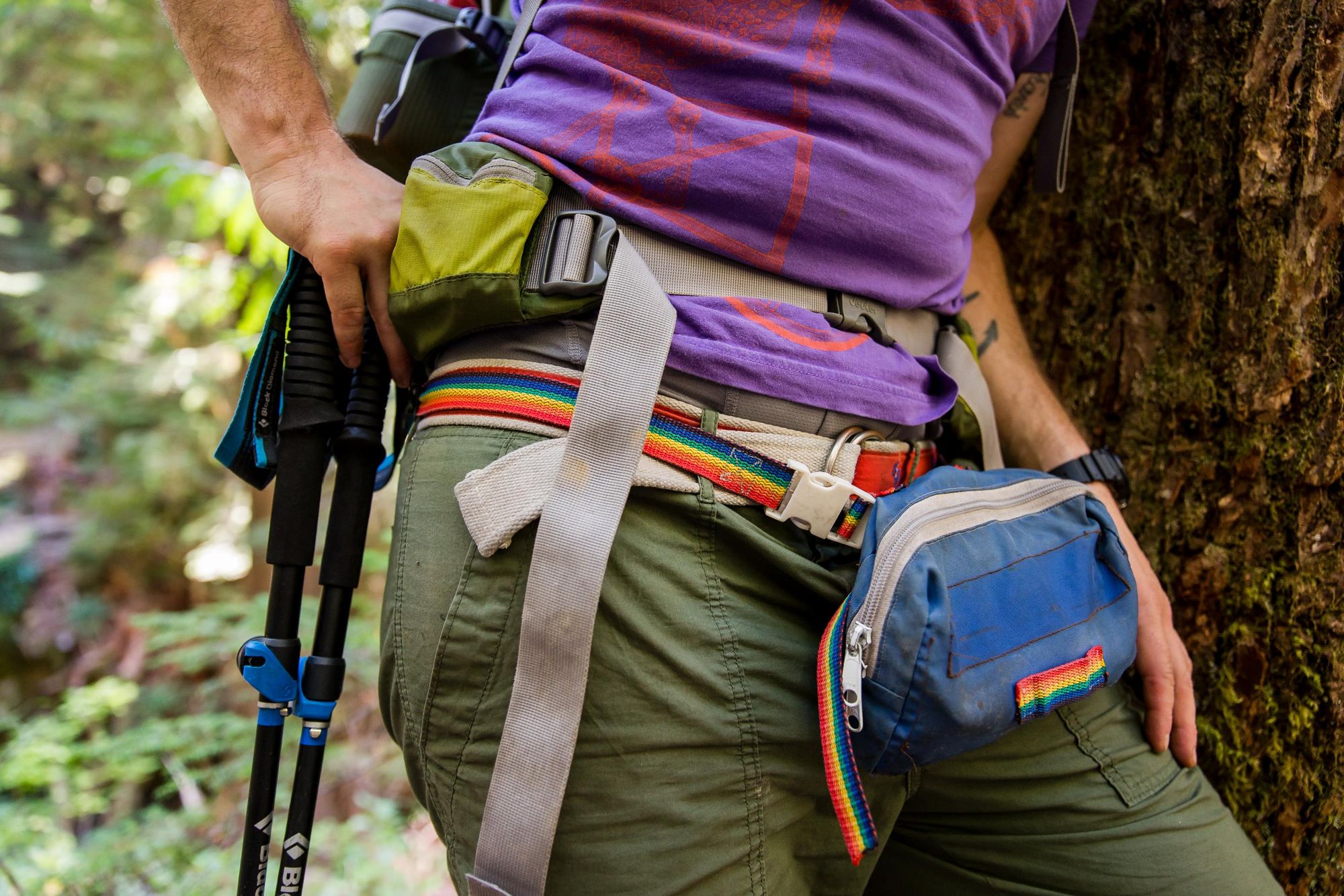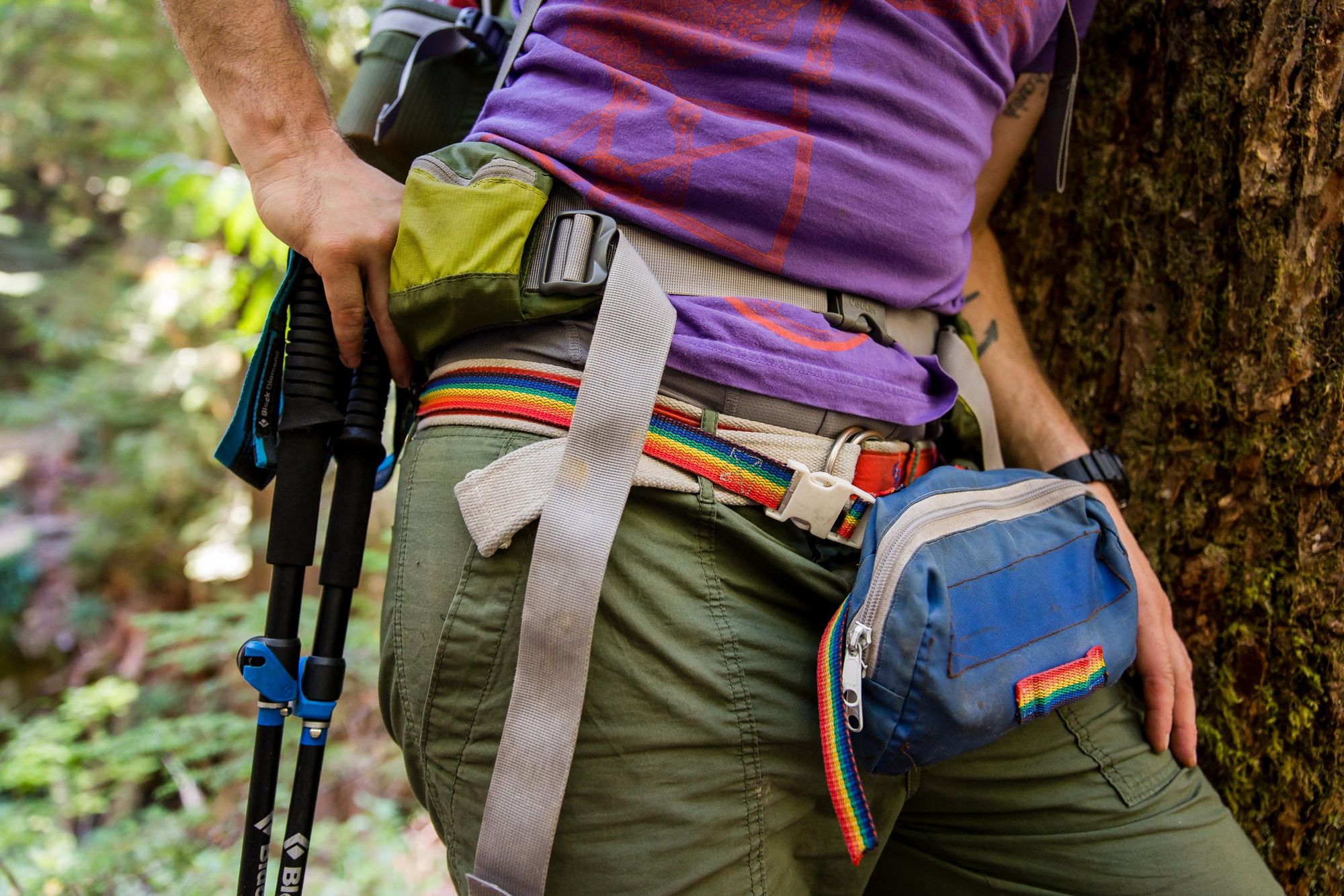
In January 2020, Ailish Breen started Queer Out Here, a collective of queer people based in the northwest of the UK, who want to connect with each other while enjoying being outdoors. The collective runs group walks which are free or low-cost to attend, and which are aimed at anyone within the LGBTQ+ community.
“I'd rediscovered nature at this point, and felt it was something I didn’t see my community doing that much of; or at least I hadn't found my people through that,” they explain. “I had different friends who I'd go outdoors with, but not my queer friends. The idea of starting Queer Out Here was to make sure that queer folk know that the outdoors is for them, and that everyone can enjoy the benefits of nature.
“When you're out in nature you feel just accepted - you feel like you can just be. It connects us to ourselves in a way that queer people might have lost, for many reasons.”
Ailish was inspired by American organisation Venture Out Project, which was founded by Perry Cohen in 2014 to make outdoor activities more accessible and welcoming for the LGBTQ+ community. We spoke to Ailish and Perry about why queer people might feel uncomfortable being out in nature, and how people of all identities and backgrounds can help change this.
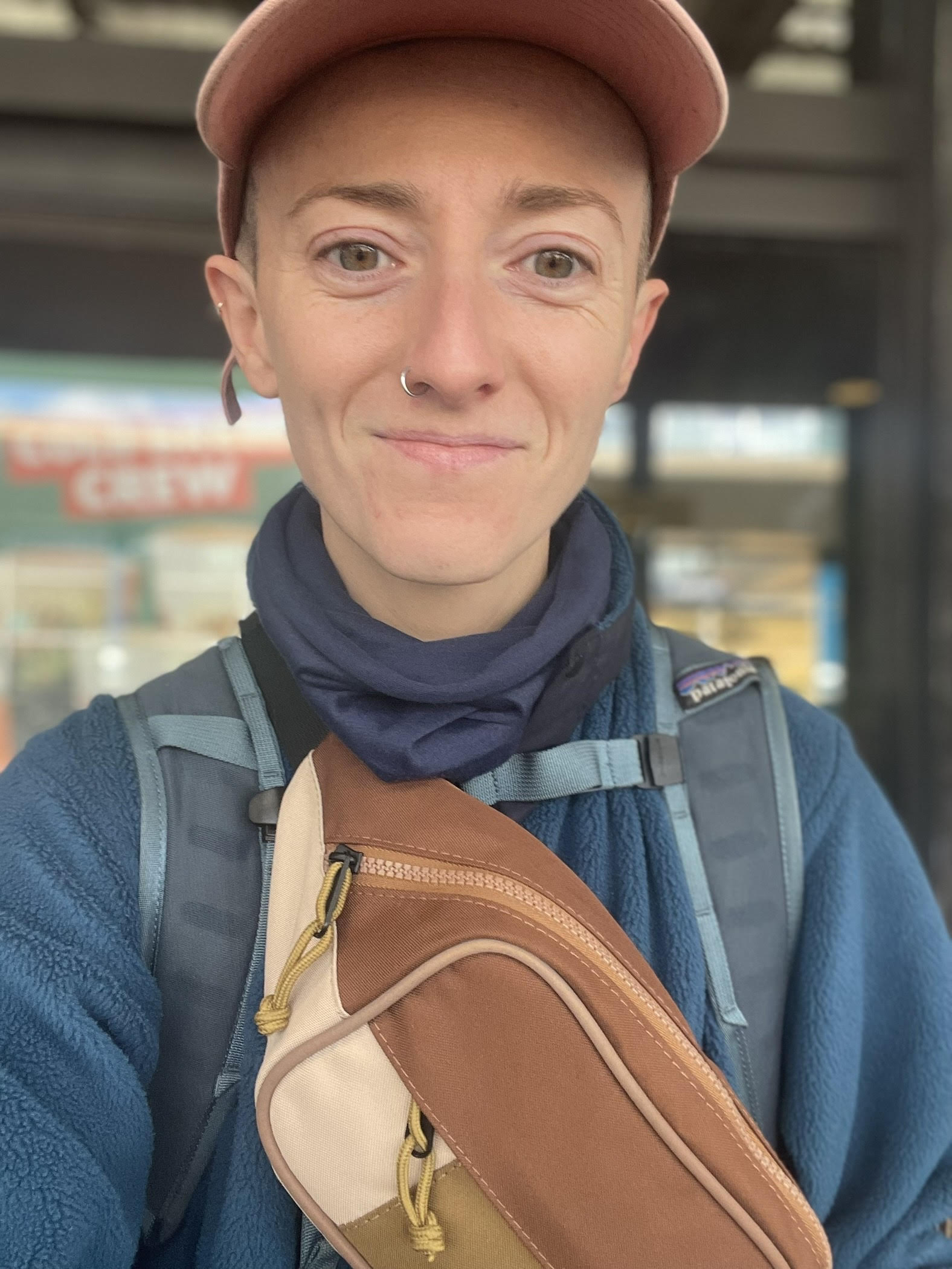

(Left) Ailish Breen, founder of Queer Out Here. Photo: Ailish Breen. (Right) Perry Cohen, founder of Venture Out Project. Photo: Palmer Morse/ Spruce Tone Films.
Ailish grew up in North Yorkshire, and was dragged out on family walks as a child. Eventually, however, it became a habit and then a joy.
“I’m really grateful for that now, because it made me realise it was something you could do to feel good,” they say. “I was one of these people who was lucky enough to have opportunities through school, such as DofE - like I had the chance when I was 18 to go to Nepal and do a trekking trip. It was just so transformational - my young mind was wowed. I just felt so present and brilliant.”
But then they went away to university and their connection with nature was lost.
When you're out in nature you feel just accepted, you feel like you can just be - it connects us to ourselves in a way that queer people might have lost
“The city was a whole new queer world of going out and bars and nightlife and music. That was so exciting and I threw myself into that,” they say. “But that lifestyle throughout uni and then the few years afterwards had quite an impact on my mental health, not in a good way.
“I felt there was a split - you can be having a queer, exciting life but it doesn't feel great, or you can be at home and it's boring but you can get outside. I didn't find a way to bring those two selves together for ages. But when I rediscovered nature in my mid-twenties, I realised that it reminded me of being a kid and I still felt like me. Because of course when I was younger and in those origin spaces, I was still queer then - and so I can return and be the same person.”
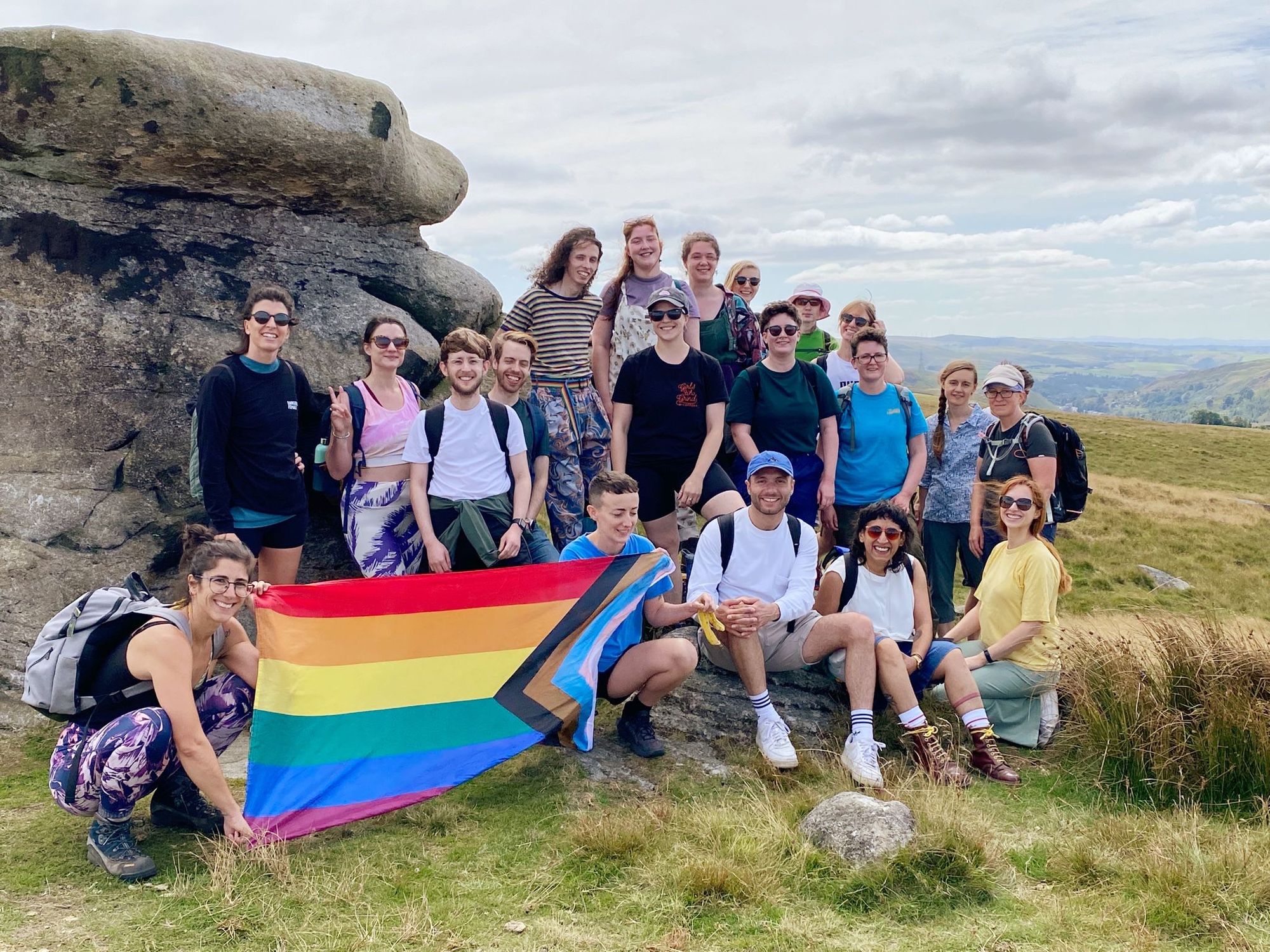
Nature has always been part of Perry's life too. He grew up in New Hampshire, camping, hiking, mountain biking and skiing, passions which continued into adulthood.
“The outdoors is where I feel most at home, the most comfortable, the most connected and in touch with myself,” he says. “I can't think of a day where I haven't spent time outdoors. I try to do it first thing, because it's invigorating and refreshing - it makes me feel alive. I also love using it as a means to build community and connect with others, whether it's surfing or hiking or skiing. It's where I've always made friends - it might actually be the only way I know how to make friends.
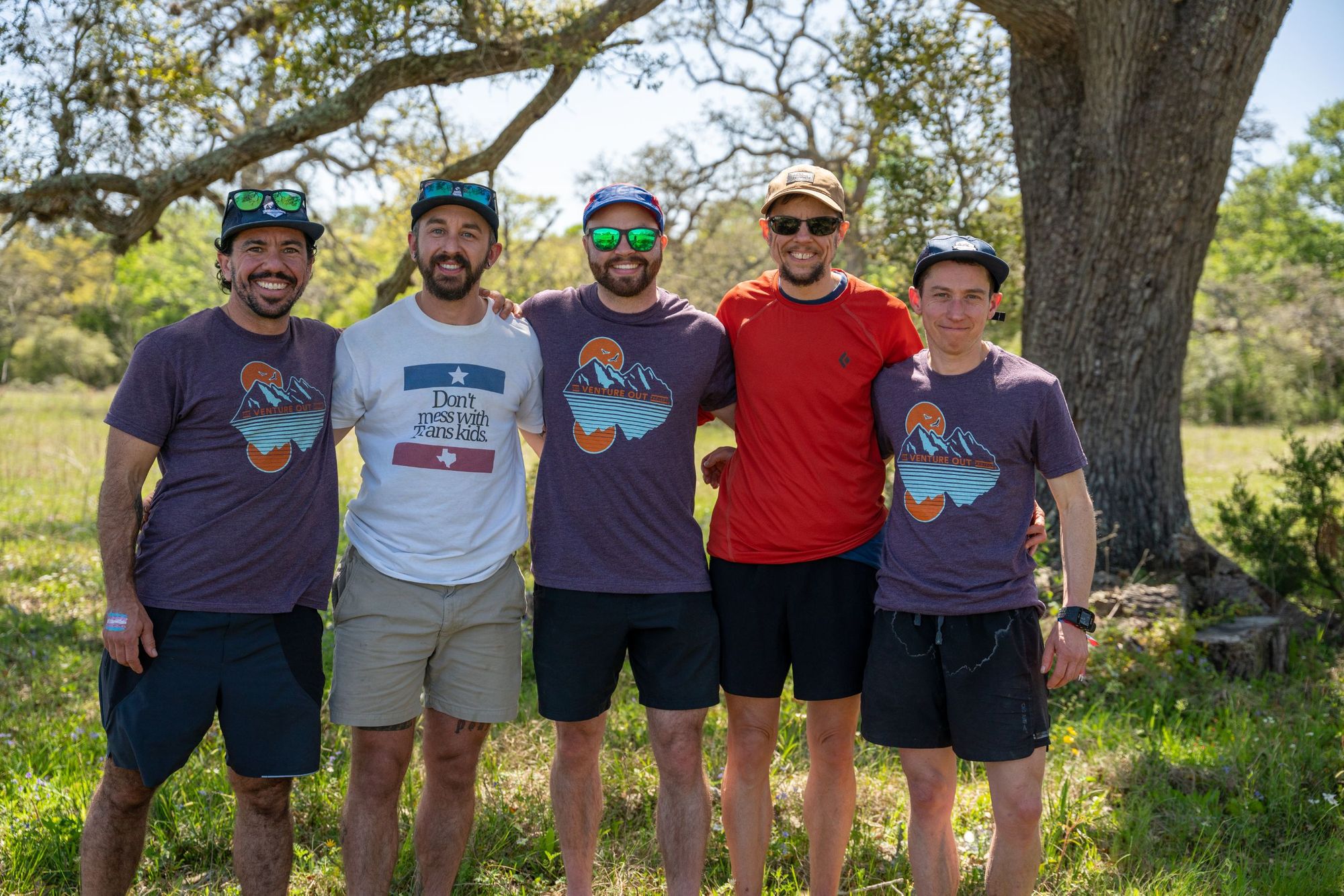
“I also think that as a queer person, nature is perfect in its imperfection, and that has always been something really beautiful to me. We love the tree that looks different to all the others, or the rock that is unique, or the animal that's doing something unusual. I wish we could have that more with humans - instead of making someone feel like the odd one out, realise how special and beautiful they are for being different.”
There are numerous benefits to being active outside (it decreases stress levels, improves fitness and enhances wellbeing, among others). However, many queer people face barriers to getting out into nature.
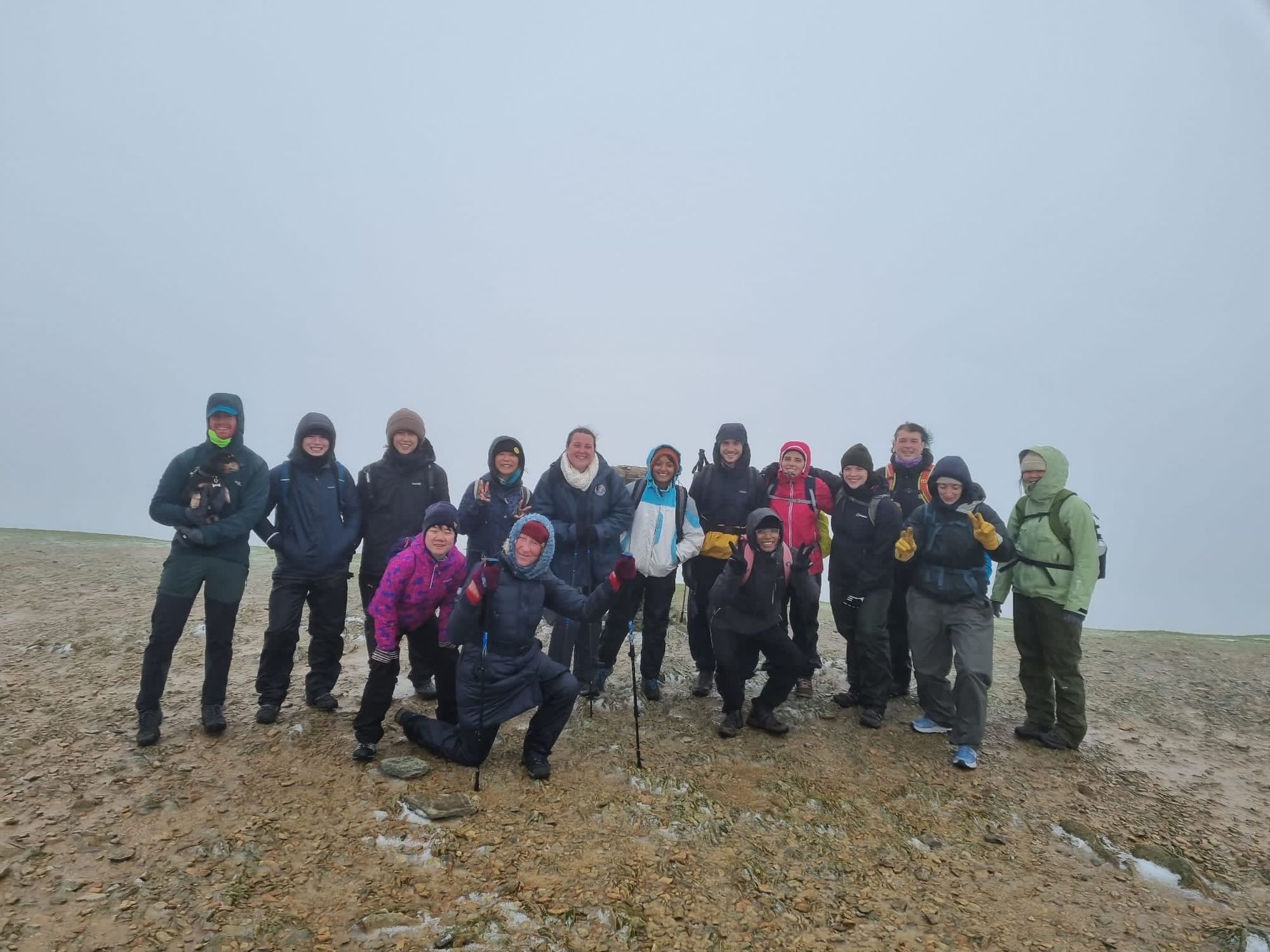
“One route into the outdoors and hiking is through a school or clubs like Scouts,” Ailish says. “Group sports or going away camping and sharing spaces with other people are not necessarily going to be things that you throw yourself into as a queer kid. You might not be welcome - you might be ostracised at school and not fit into those spaces - although this wasn’t the case for me.
“Another, unrelated barrier is representation in the outdoors. Like who’s the group leader that's taking you out? If it's not somebody like you that might be a deterrent; you might not feel safe, you might not be drawn to it.
“Then there's some slightly more abstract reasons as well, to do with our social understanding of what queer identity is. Queerness is seen as hedonism, pop culture, that side of life. There's also a rhetoric that being queer is ‘unnatural’ and the outdoors is formulated as a wholesome family space, which queer people aren’t considered part of.”
There's also a rhetoric that being queer is ‘unnatural’ and the outdoors is formulated as a wholesome family space, which queer people aren’t considered part of
Organisations such as Venture Out Project and Queer Out Here have been set up to improve accessibility to the outdoors for queer people. They are part of a growing number of organisations that are helping diversify the outdoors (other UK groups include Wanderlust Women, a Muslim women’s hiking group, the Queer Surf Club and Black Girls Hike). This helps make the outdoors more accessible for a wider demographic. But both Perry and Ailish have had people question the need for queer-only organisations.
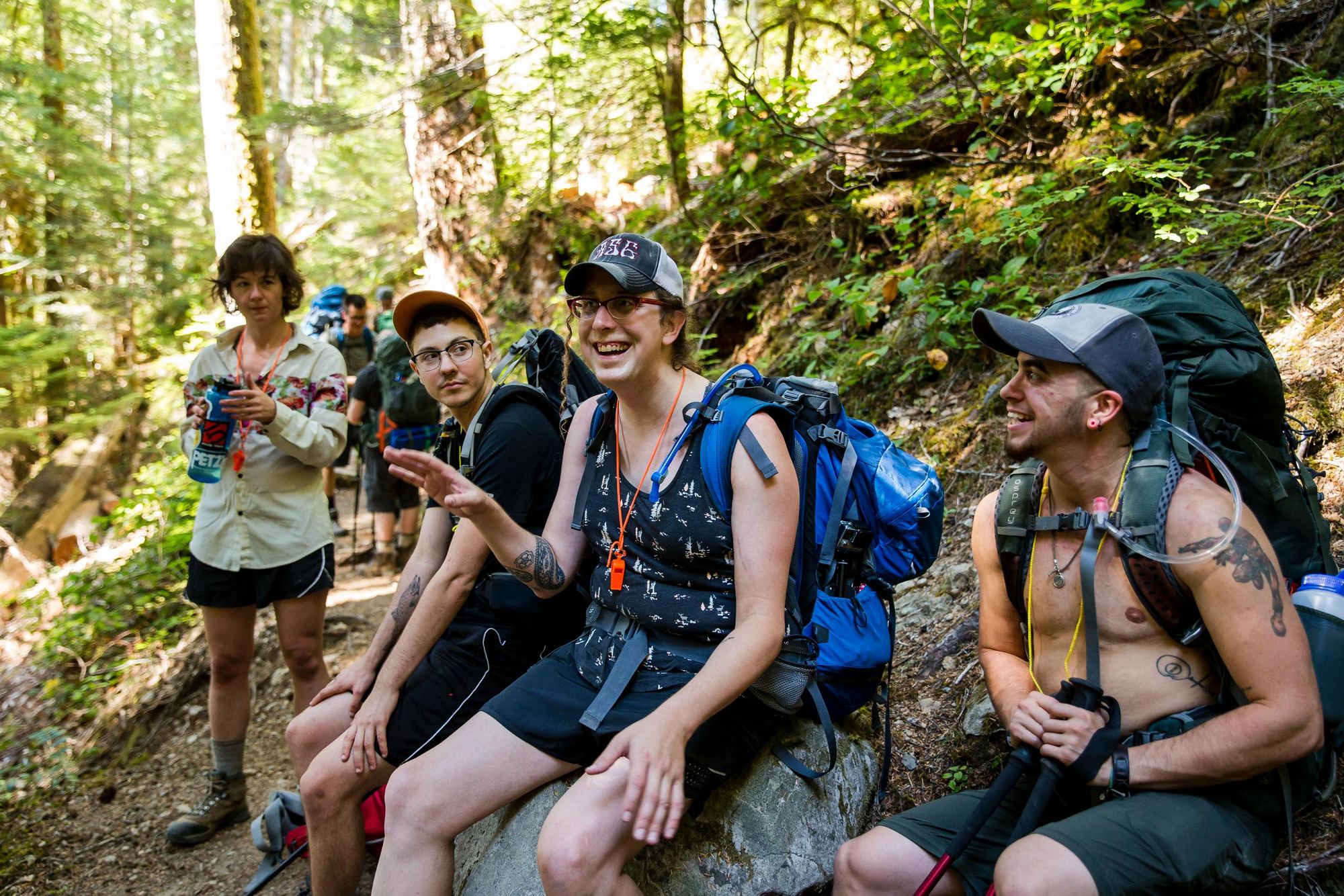
“People ask me why Venture Out needs to exist,” Perry says. “Well, because the rest of the world is made for straight, cisgender people. Sometimes you need to have a space where you can go backpacking, which is already intimidating if you're a beginner - and are scared about sleeping on the ground, or about bears, about not having enough food - and remove the worry that someone might misgender you or not understand who you are or attack you physically. If you can just remove all that and focus on learning to backpack, that's an incredible gift.
“For so many people on our trips, this is the one week a year when they get to be in a queer community and be themselves. Even if they're out, chances are they might work or live with mostly straight people, who haven't shared their lived experience.”
Ailish echoes these sentiments.
“In the queer community, many of us at some point feel like we don't belong, whether that's because of where we grew up, or our families, or just because society still expects most people to be straight,” they say. “Having a community around us who understand our life experiences is very validating and important, to just feel that you're not strange and not alone. That's something that straight and cis people have every single moment of every single day without realising it - their existence is validated. But we have to seek out those spaces to connect with the community and feel safe to be our true selves.
When queer people are in a non-queer space they are ‘code switching’, gently assimilating and maybe toning down their queerness in order to fit in and feel safe
“Something that people might not realise is that when queer people are in a non-queer space they are ‘code switching’; gently assimilating and maybe toning down their queerness in order to fit in and feel safe. The reality is that anti-LGBT hate crime, especially anti-trans hate crime, has gone up by an obscene amount in the last few years. So it's actually still not safe to be queer in our society. It's understandable that people would seek out a place where they can feel safe and put that down for a moment, just relax and breathe.”
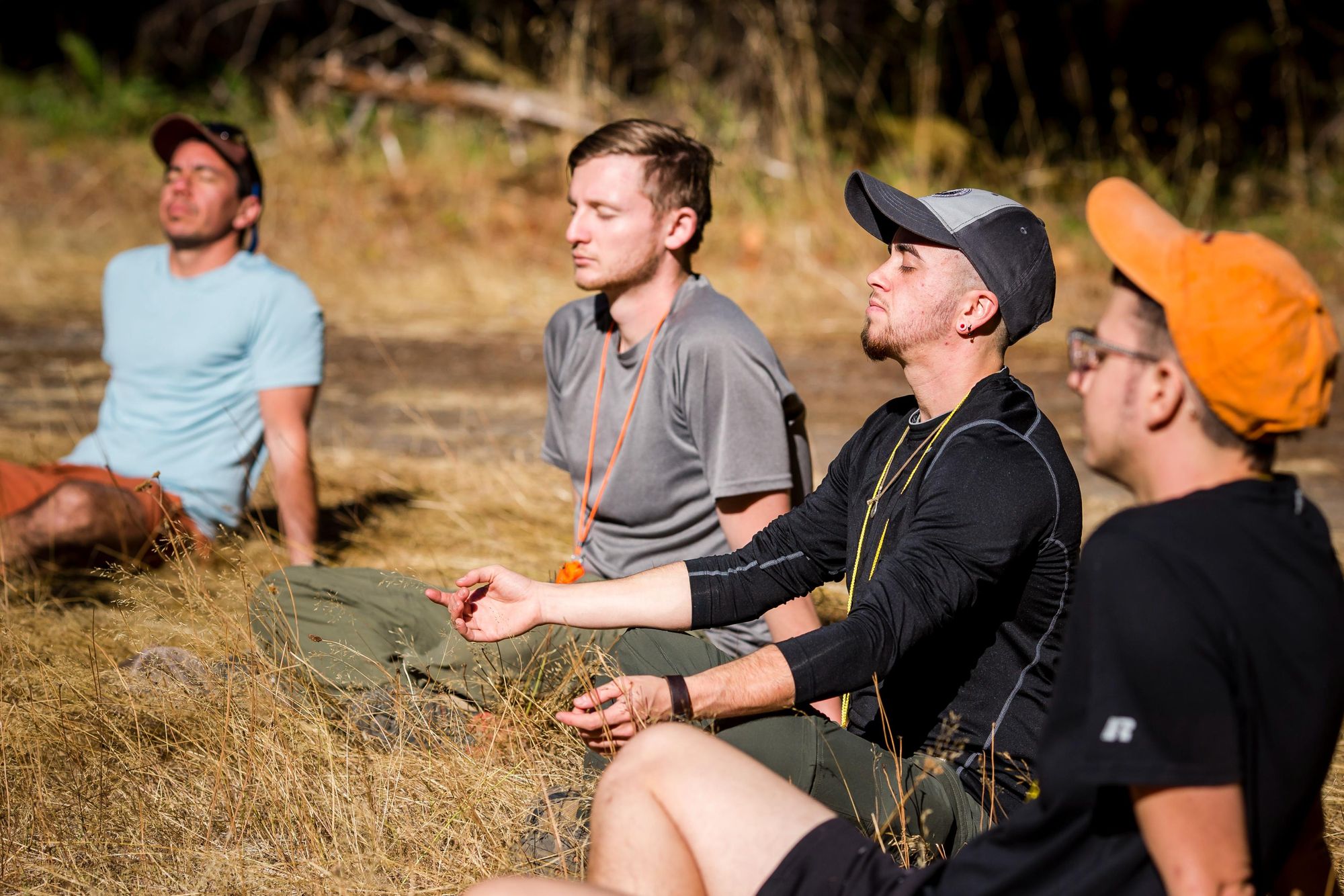
Queer-only groups in the outdoors exist as spaces where people can enjoy being in nature while being themselves. But the more inclusive the outdoor industry becomes, the easier it will be for queer people to feel comfortable in nature without the support of these groups; with their families, friends or alone. Ailish believes that while the outdoors is becoming more inclusive, there’s still a long way to go.

“Progress is definitely happening,” they say. “When I first started Queer Out Here, I didn't see another queer outdoors group around in the UK, and now there are tons. So that's great; obviously that means that there will be more queer people going outside. Brands have recognised that diversity in the outdoors is a moneymaker, and I also think there are people working in those places who really care, and are pushing things forward. That makes a difference.”
As a queer person, nature is perfect in its imperfection, and that has always been something really beautiful to me.
“Changing the national consciousness takes a bit longer. In terms of ‘the outdoors is for families’, I'd say that is still fairly the norm rather than ‘the outdoors for lots of different people’, but I think that will naturally and gradually change.
“Where I think we've got a long way to go is in the leader industry - with outdoor qualifications and capability building. If you post on a Mountain Leader Board, looking for a queer instructor to lead a hiking trip in Scotland, you would be very unlikely to find someone. But you would have hundreds of replies saying 'I'm not queer but why can't I lead this group? This is exclusionary.' So there’s an attitude change that’s going to take longer. There are people working on it. There's a climbing festival called Climb Out who've got a bursary to train instructors, for example. But it’s few and far between and I think it's going to take a long time.”
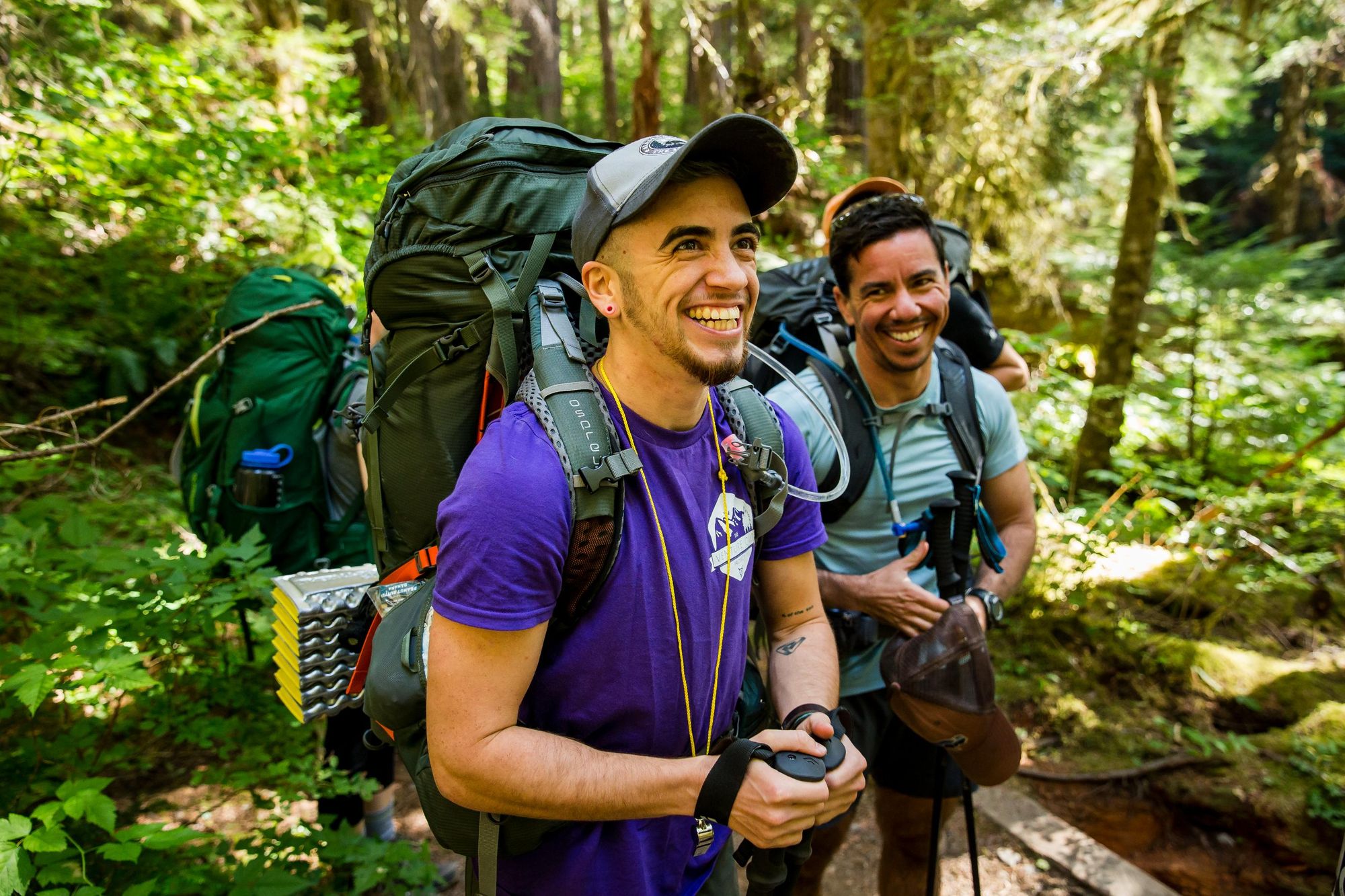
Straight, cisgender people can also play a part in helping queer people feel comfortable in the outdoors. Ailish - who is also a consultant in building inclusion and equity for the LGBTQI+ community - has plenty of suggestions.
“If you are part of any outdoor group or club, then have a think if you can be a vocal ally in that space,” they say. “Could you get your club to do a training about LGBT inclusivity, or could you think about whether you're creating a welcoming space for any queer people who are part of your group? Are there any barriers that you can think of that might mean that LGBT people aren't joining your group, or don't feel like they can?
“If you live in a rural area, you could do some work with your local village or town council to make where you live more welcoming to LGBT people. Because often those places where walks start can be intimidating - to go to the perfect little English village is not necessarily the most welcoming space for a queer person.”
Just be friendly to anyone that you see in the outdoors, even if they don't look like how you would expect people to look
Ailish also mentions the importance of educating yourself around the subject of micro-aggressions - defined as an indirect, subtle or accidental form of discriminating against members of a particular minority group - that people can experience while outdoors.
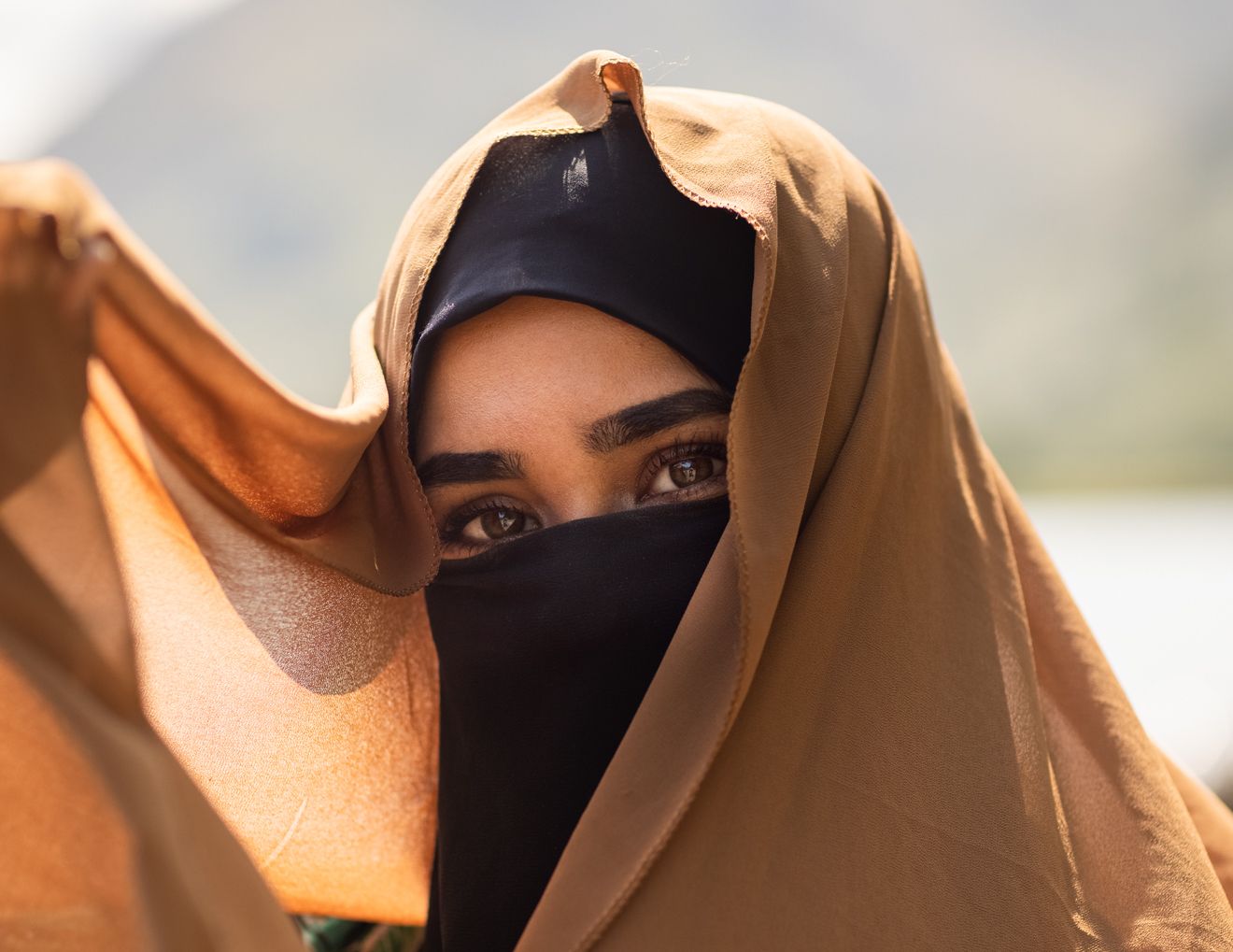
“A classic one for people of colour is people asking them if they're lost when they go out on a walk,” they say. “Sometimes we have kind intentions - people aren't always setting out to be malicious - but that is a microaggression, and can make people feel unsafe. Visibly queer folk can also be treated as out of place. People can avoid microagressions just by making sure they're not being condescending to people in the outdoors, not offering unasked for advice that they wouldn't offer to someone else.
“Just be friendly to anyone that you see in the outdoors, even if they don't look like how you would expect people to look; even if they're not wearing what you deem to be the right clothing for being outdoors, still just give them a smile and be welcoming.”
Inspired? Read more about Queer Out Here and The Venture Out Project, or get your nature fix on one of our small group adventures.


